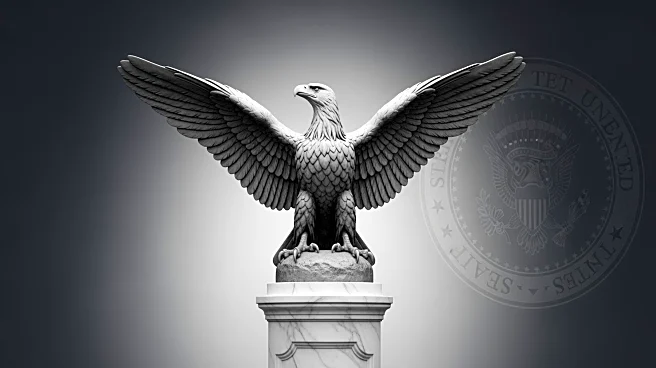What's Happening?
President Donald Trump has left open the possibility of running for office again in 2028, according to recent discussions among his advisers. This development has sparked debate over the potential for a third term, which would require navigating the constraints
of the 22nd Amendment. Legal and presidential history experts, including James Sample and Mark Updegrove, have weighed in on the implications of such a move. The 22nd Amendment, ratified in 1951, limits U.S. presidents to two terms in office. However, Trump's advisers are reportedly exploring potential workarounds to this constitutional limitation, though specifics have not been disclosed.
Why It's Important?
The prospect of President Trump running for a third term could have significant implications for U.S. politics and governance. If Trump were to pursue this path, it would likely lead to legal challenges and a national debate over the interpretation of the 22nd Amendment. Such a move could also influence the strategies of both the Republican and Democratic parties, potentially reshaping the political landscape. For Trump supporters, a third term could be seen as an opportunity to continue his policies and influence, while opponents might view it as a challenge to democratic norms and constitutional boundaries.
What's Next?
If President Trump decides to pursue a 2028 run, it would likely trigger a series of legal battles and political maneuvers. Key stakeholders, including political leaders, legal experts, and civil society groups, would likely engage in debates over the constitutional implications. The Republican Party would need to consider its stance and strategy, while the Democratic Party might use the situation to galvanize its base. The outcome of these discussions could have lasting effects on the U.S. political system and the interpretation of presidential term limits.
















